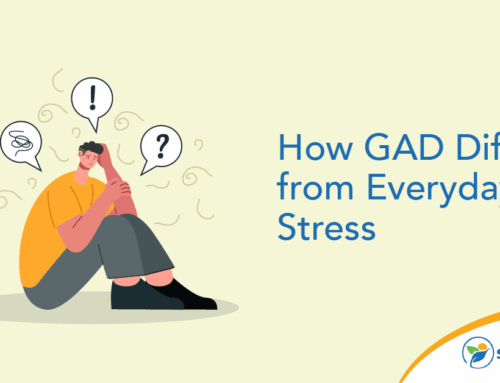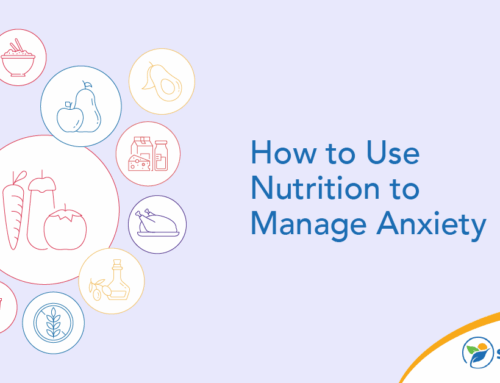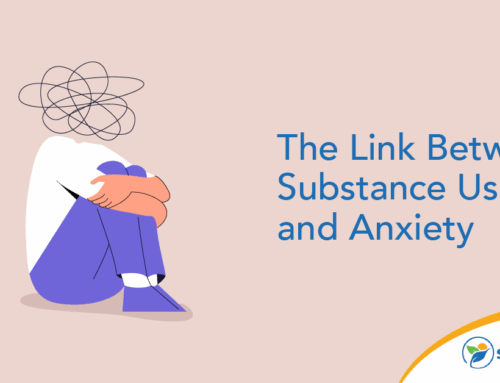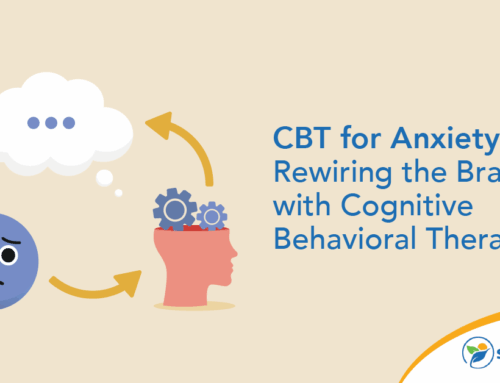It’s common for us to slip into a new habit or hobby that enthralls us. Someone who just discovered their love for rollerblading might do it for hours, several days in a row. But when someone with attention deficit hyperactivity disorder (ADHD) experiences hyperfixation, it’s at a much more extreme level. Hyperfixation is one of the most common symptoms linked to ADHD. Let’s take a closer look at the relationship between ADHD and focus.
What Is Hyperfixation?
Hyperfixation is when you focus on a task so intensely you lose track of the time and what’s happening around you. In a neurotypical person, this could look like watching three episodes of your favorite show back to back or shopping for several hours. But in a neurodivergent person, hyperfixation can look like reading a book for 8 hours without getting up for food or water.
The difference is that a neurotypical person would notice the time passing and still attend to their needs, such as hunger. In comparison, someone with ADHD stuck in a hyperfixation episode doesn’t notice time is passing by until they’re “pulled out” by someone or something. Many people with ADHD describe this phenomenon as being in a sort of “dreamlike state” and feeling “shaken” when they’re pulled out of it.
Hyperfixation is often linked to ADHD, but it’s also common in other mental health conditions, including autism, depression and anxiety.
Common Themes for Hyperfixation
A person can become hyperfixated on just about anything. For one individual, it might be a new hobby like knitting, while for another, it may be repeatedly counting the stars on their ceiling. Still, there are some common themes for hyperfixation, such as fixating on:
- A person
- A fictional character
- Food
- Shows
The Link Between ADHD and Hyperfixation
There’s clear evidence that hyperfixation is linked to ADHD. People who don’t know a lot about this condition might find this surprising, because ADHD is commonly believed to be a person’s inability to focus. However, this isn’t correct. A person with ADHD struggles to focus on the “right” thing in the moment. Their brain takes note of everything calling for their attention and has trouble determining what should be prioritized.
As the Attention Deficit Disorder Association (ADDA) explains it, “ADHD isn’t actually an attention-deficit disorder. It’s more of an attention-abundance disorder. The challenge lies in learning to regulate and control it.”
So, why does hyperfixation happen for individuals with ADHD? Experts believe ADHD transforms how a person’s brain reacts to reward and gratification. As a result, someone with ADHD might be more prone to fixating on a task they enjoy.
ADHD expert Russell Barkley, Ph.D., says, “Children and adults with ADHD have difficulty shifting attention from one thing to another. If they’re doing something they enjoy or find psychologically rewarding, they’ll tend to persist in this behavior after others would normally move on to other things. The brains of people with ADHD are drawn to activities that give instant feedback.”
The Mental Health Impact of Hyperfixation
Mental health and ADHD can’t be discussed without also mentioning the impact of hyperfixation. In some cases, hyperfixation can have some positive benefits. It can allow someone to focus and be incredibly productive.
But it should also be noted that hyperfixation comes with some downsides. Someone with ADHD might be using their hyperfixation to avoid their problems and cope with adverse situations. In this scenario, hyperfixation becomes an escape, allowing the person to avoid their problems.
Lastly, hyperfixation in individuals with ADHD can cause the person to not take care of themselves. They may disregard their need to sleep, eat and shower as they fixate on the task. The person can also miss important events due to a hyperfixation state, such as going to work, important meetings or scheduled events.
Hyperfixation and Hyperfocus: The Differences
When speaking about ADHD-related symptoms, people often use the terms hyperfixation and hyperfocus interchangeably. But these are different experiences, and it can be helpful to understand the definitions of each.
Hyperfocus is when someone becomes highly focused on a specific task for a short period. Being in a state of hyperfocus can be a good thing, as it allows you to accomplish a task in front of you. In contrast, hyperfixation is being transfixed on a hobby or activity for an extended period without being aware of your surroundings or time passing. Fixation is hard to control and can be disruptive to day-to-day life.
Recognizing & Managing Hyperfixation Patterns
A part of ADHD awareness is understanding how to recognize when symptoms arise and how to deal with them. If you’re worried about hyperfixation taking over, try incorporating these habits into your routines:
- Set time limits. If you know you’re prone to hyperfixation, be proactive about challenging your pattern. Set an alarm when you’re about to start an activity you particularly love. This alarm will help keep you centered around how much time has passed and pull you out of a fixation if one occurs.
- Check in with loved ones. Anyone struggling with a mental health condition, such as ADHD, should regularly check in with loved ones. Often, our loved ones can pick up on signs we’re struggling before we notice. Frequent interactions with your closest friends and family will allow them to point out if you’re slipping into a pattern of hyperfixation.
- Address the real problem. Hyperfixation is often a way to escape a problem. If you notice you’re fixating more often, you may benefit from going to therapy to get to the root of what’s causing you discomfort in your life.
Treating Hyperfixation in ADHD Adults
Neurodiversity is a good thing. People’s brains work differently, and that’s perfectly okay. Still, if you’re an adult with ADHD and find your symptoms negatively impact your daily life, ADHD management options are available. And if you find yourself experiencing more frequent hyperfixation episodes, seeking help might be a good idea.
More than 366 million adults around the world have ADHD. This mental health condition is prevalent, but it’s also often misdiagnosed or missed. Part of this may be that symptoms show up differently in children compared to ADHD in adults. Children exhibit apparent signs, such as intense energy and talking and fidgeting in inappropriate situations. In comparison, adults with ADHD might only display feelings of restlessness, tension and intense fixations. In fact, one study estimated only 11% of adults with ADHD are properly diagnosed.
But ADHD symptoms are treatable. A combination of cognitive therapy and prescription medication can lessen symptoms, including the frequency of hyperfixation episodes.
Get ADHD Help Today
Sunlight Recovery is a mental health treatment facility experienced in treating ADHD. Let us help you identify the root of your hyperfixation episodes so you can get the help you need. Contact us today to learn more about our programs.







